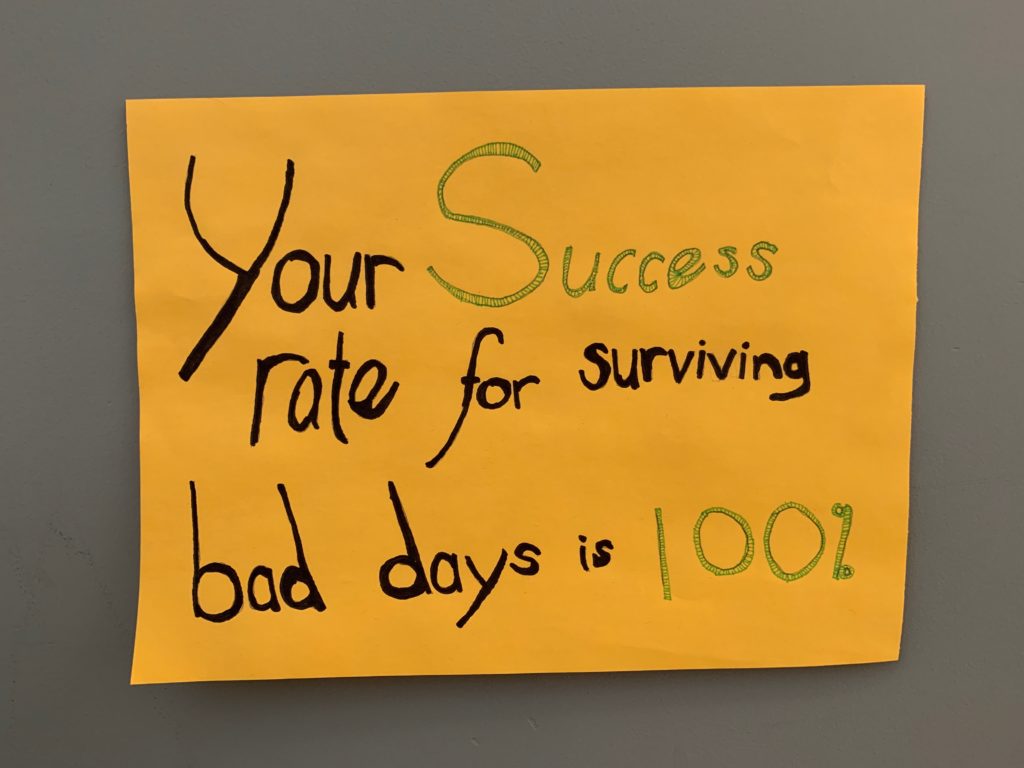
While walking the beach this morning, on the Atlantic Coast where I’m taking an alleged vacation, I happened upon a marooned jellyfish left high and dry by the receding tide. Just a lifeless, weirdly beautiful blob of 95% water slowly evaporating in the sun.
My first thought was, “Yeah, I’ve felt like that.”
Maybe you can identify, too, especially in the long-term care profession, where we can sometimes feel victimized and powerless to move against what we perceive as undiminishing forces beyond our control.

So many vulnerable seniors needing our care, and so few are willing or able to provide it or pay for it. So many policy-makers with self-serving, short-sighted agendas. So much change. So much regulatory complexity. So many large-scale demographic, funding and staffing crises on the horizon. It’s easy and understandable to feel stuck sometimes.
I’m no scientist, but obviously, this sad, gooey little creature on the beach got there because he/she/it was a poor swimmer, simply drifting with the prevailing current until hopelessly stranded. No preemptive navigation, no proactive planning — kind of like how some providers appear to be preparing for the Patient-Driven Payment Model. Sadly, come October, I fear they’ll be Doing the Jellyfish — overwhelmed, immobile and wondering how they got there.
I got down on my knees and looked that jellyfish, straight in the tentacles. “Tell me your story,” I implored. “What happened? How did you end up like this?”
“I saw the Patient-Driven Panic Model coming, gave up and stopped swimming,” he/she/it sighed, and then dissolved into nothingness on the sand.
“Rest in peace, my gelatinous friend,” I said, bowing my head, hands to heart center. “Namaste.” The rest of the afternoon was spent weeping by the pool.
My late jellyfish friend provokes a real puzzler. Why do some people/providers/organizations/countries view overwhelming challenges as exciting opportunities, while others simply give up, stop swimming and expire? How do we avoid Lethal Jellyfish Syndrome?
The question stirred a memory of a hugely successful long-term care intergenerational event I attended recently, a takeoff on the Chopped TV show, where dietary managers taught teams of at-risk children how to cook, and nursing home residents helped judge their work. Being part of something like that would brighten anyone’s day and offer a reason to keep swimming, and it did for me.
But what really struck me in a moment of truth was a bright yellow hand-made sign scribbled in bold Sharpie and hanging on one of the nearby walls:
“Your success rate for surviving bad days is 100%.”
What a silly cliché. How trite — and yet how irrefutably true. The sentiment was simplistic, intended to inspire courage in children, but the idea powered right home to me as well, so much so that I took a picture of it and tacked it up on my office wall.

In fact, these days I find the most impactful truths come not through expensive consultants, cookie-cutter self-help books or slick motivational speakers, but in the simplest, clearest, most gut-level messages that seem sometimes to be placed in front of me straight from the universe.
That sign said everything I needed to remember right then — that we’re still here, and that’s pretty amazing.
No matter what I’m facing, the fact that I’m standing, reading this sign, proves my resilience, and the potential for more. As individuals and a profession, we’ve been through hard times before, with a survival rate that’s pretty darn strong. So next time we feel hopeless, misunderstood or abandoned on the beach, let’s remember to take what small actions we can, regardless of the forces arrayed against us.
Obviously, that silly yellow sign couldn’t help the jellyfish. But it’s sure doing wonders for me.
Things I Think is written by Gary Tetz, a national Silver Medalist and regional Gold and Silver Medal winner in the Association of Business Publication Editors (ASBPE) awards program. He’s been amusing, inspiring, informing and sometimes befuddling long-term care readers worldwide since the end of a previous century. He is a multimedia consultant for Consonus Healthcare Services in Portland, OR.





